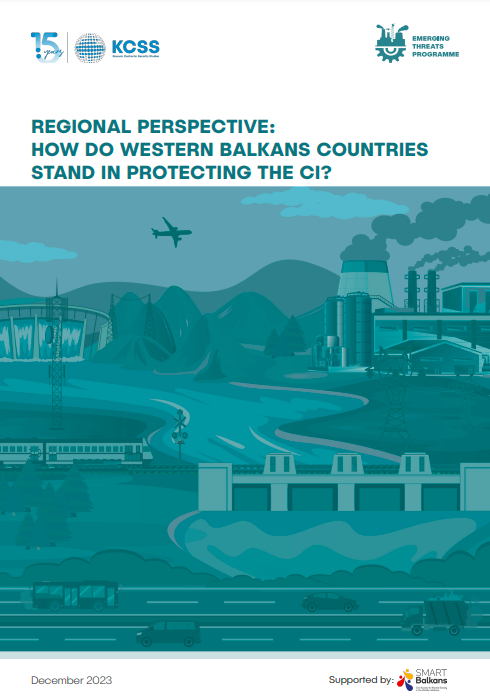18/12/2023

The report explores the critical infrastructure (CI) environment in the six countries of the Western Balkans (WB), respectively: Albania, North Macedonia, Montenegro, Bosnia and Herzegovina, Serbia, and Kosovo. The report analyses the main vulnerabilities of the region with respect to protection of critical infrastructure, shaped by factors such as ethnic tensions, historical conflicts, demographic shifts, and environmental challenges.
It identifies the primary types of critical infrastructure crucial for the region’s economic development and social stability: energy, transportation, telecommunications, water and sanitation, healthcare, and emergency services. However, it highlights the lack in maintenance, protection measures, and coordination, leaving the infrastructure open to potential risks.
Analyzing the policy framework, it highlights similarities between the European Union (EU) and the Western Balkans (WB). Following the development of resilient strategies post-9/11, the EU places a strong focus on ensuring the security of critical infrastructures. The WB countries, in their addition process to the EU, have signed a Joint Action Plan on Counter-Terrorism, aligning themselves with EU standards. Despite variations in the definition of critical infrastructure across the WB nations, efforts are underway to establish efficient protection systems.
The analysis of national laws reveals that four countries of the Western Balkans: Kosovo, Albania, Montenegro, and Serbia— have adopted specific critical infrastructure laws, while in Bosnia and Herzegovina there is a relevant law only on the entity level, but not on a state level. In general, they are following the EU trajectory on Critical Infrastructure Protection. North Macedonia is in the process of drafting a CI law. While acknowledging the progress made, this report emphasizes the need for continued political and professional cooperation to harmonize CI protection methodologies in the Western Balkans. The analyses show how crucial it is for the Western Balkans to protect their critical infrastructure. As the Western Balkans work towards joining the EU, it’s essential to put in place strong protection systems. These measures play a key role in fostering economic growth, maintaining social stability, and enhancing overall resilience.